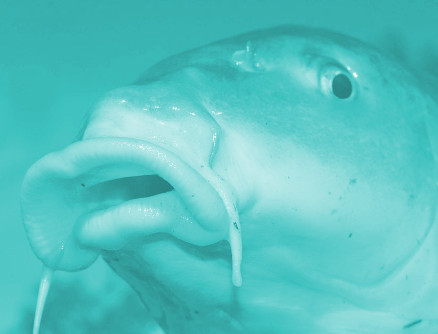Carp cull questioned
 Experts have questioned the National Carp Control Plan (NCCP), saying it falls short on safety and efficacy.
Experts have questioned the National Carp Control Plan (NCCP), saying it falls short on safety and efficacy.
CSIRO senior scientist, Heather McGinness, said the plan for a mass cull of carp could have devastating effects on native waterbirds.
“When there is a big loss and a sudden loss of a certain fish species, waterbird populations can have big population crashes and failed breeding events,” Dr McGinness said.
“Carp, we think in some areas of the Murray Darling Basin, are now about 80 or 90 per cent of the biomass of fish that are in our system and that's a huge percentage.
“It's highly likely that our waterbirds and other animals that consume fish have had to switch their diet and eat carp because their native fish diet has basically disappeared.”
Dr McGinness said the virus could result in a large number of chick deaths if it was released during breeding.
She suggested the “depth and extent” of the research of the NCCP may not be where it needs to be.
“We do need more investigation into potential impacts on things other than fish and water quality … that includes fish consumers and things that live in the water that will be affected by this mass fish death,” she said.
Dr McGinness said that waters full of dead fish could impact many other animals.
“If you get a massive water quality decline that will effect things like crustaceans, mussels and other invertebrates and those are also food sources for waterbirds,” she said.
La Trobe University fish ecologist Alison King says other animals would need an alternative food source.
“Maybe we need to think about ways we could test some of this,” Dr King said.
“We don't have to be in a rush, we could actually stage this out.”
The NCCP is seeking a 70 per cent reduction of carp numbers, but Dr King says those carp not infected by the virus will breed, re-establishing the species' population.
“We appear to be seeing that the virus may only be effective in certain temperatures ranges,” she said.
“So that suggests we're going to have some fish that won't be affected by this virus.”
Charles Sturt University researcher Keller Kopf said tests in laboratory conditions can only be so useful, especially with variables like temperature differing wildly in the natural environment.
“There haven't been any studies conducted to actually look at how the virus effect any species in wild environments,” Dr Kopf said.
“Given that rivers and wetlands out in nature are quite different to experimental lab conditions we expect the virus to work differently both in terms of effecting carp but also ecosystems.”
Dr Kopf said the NCCP is unlikely to reach its targets.
The virus has been used in dozens of countries including in the United States, in Europe and Japan, but Dr Kopf says there is little evidence to suggest it would effectively kill carp in Australian conditions long-term.
Researchers were given a 12-month extension to further investigate the virus late last year, but no additional funding.
“There's just so many gaps … there's a number of questions that need to be answered before we can reliably predict whether this virus is going to have any effect at all on both carp and native species,” Dr Kopf said.
“I think it would be incredibly unwise to continue as Australia has in some cases in the far past where we've just assumed releasing a biocontrol agent is a good thing and it's turned out it's gone completely the opposite direction.”
NCCP coordinator Jamie Allnut said some of the issues are being addressed.
“We've built into that research program [the] flexibility to adjust the research as required to ensure we develop a report that goes to government that deals with all of the key questions associated with the virus release,” she told the ABC.








 Print
Print